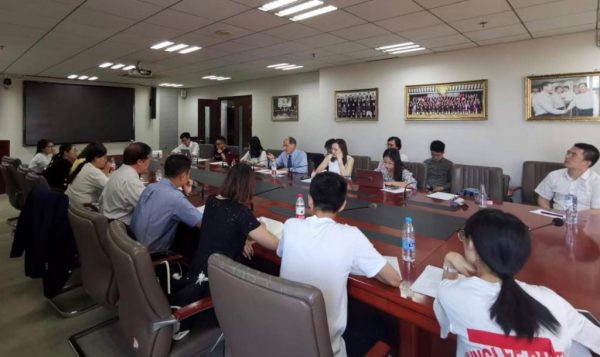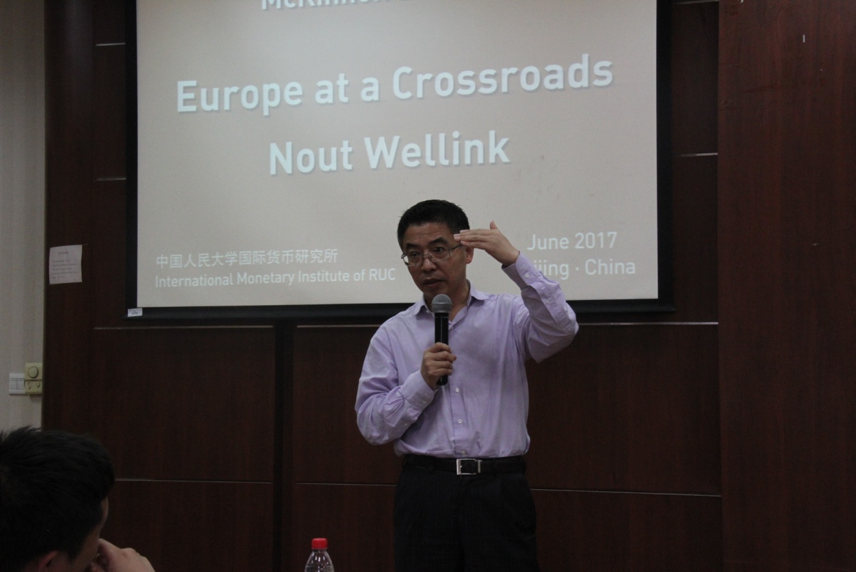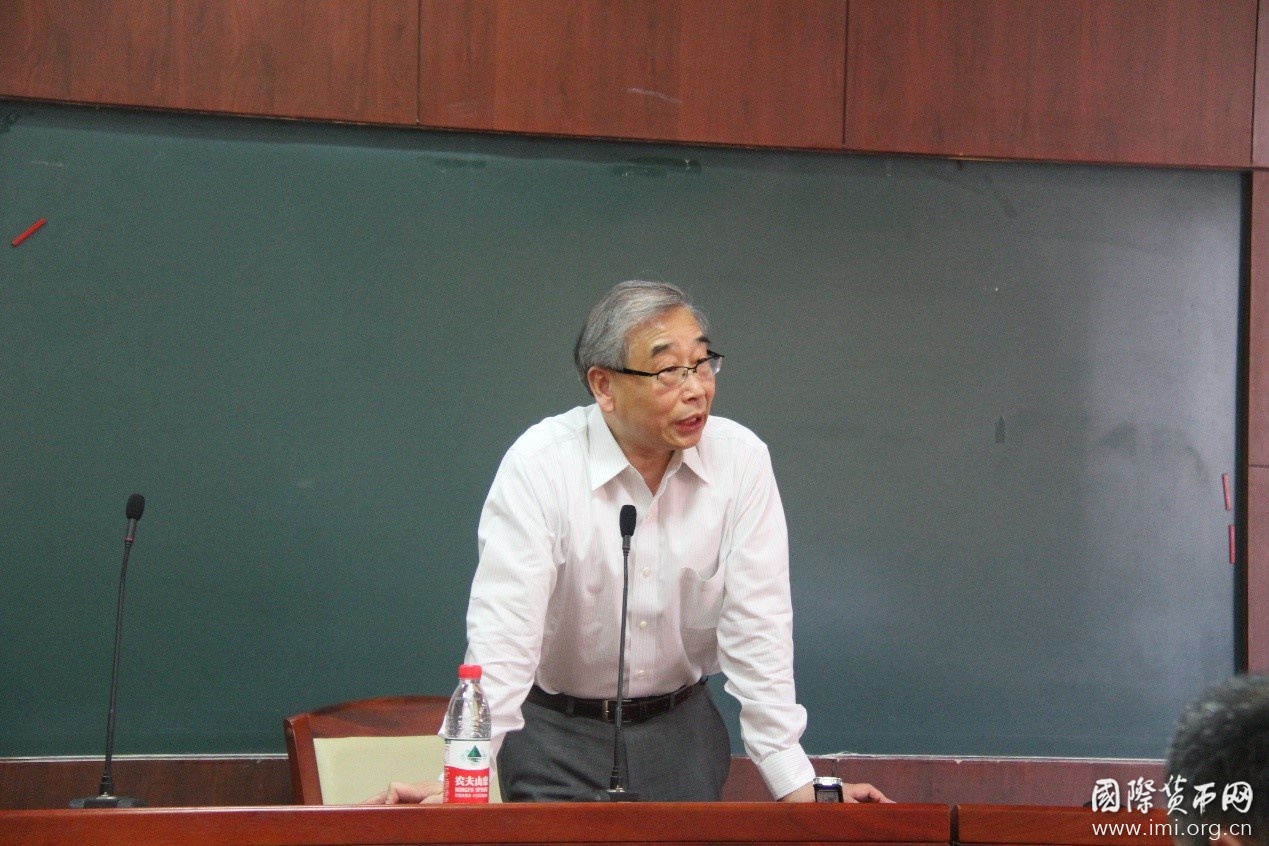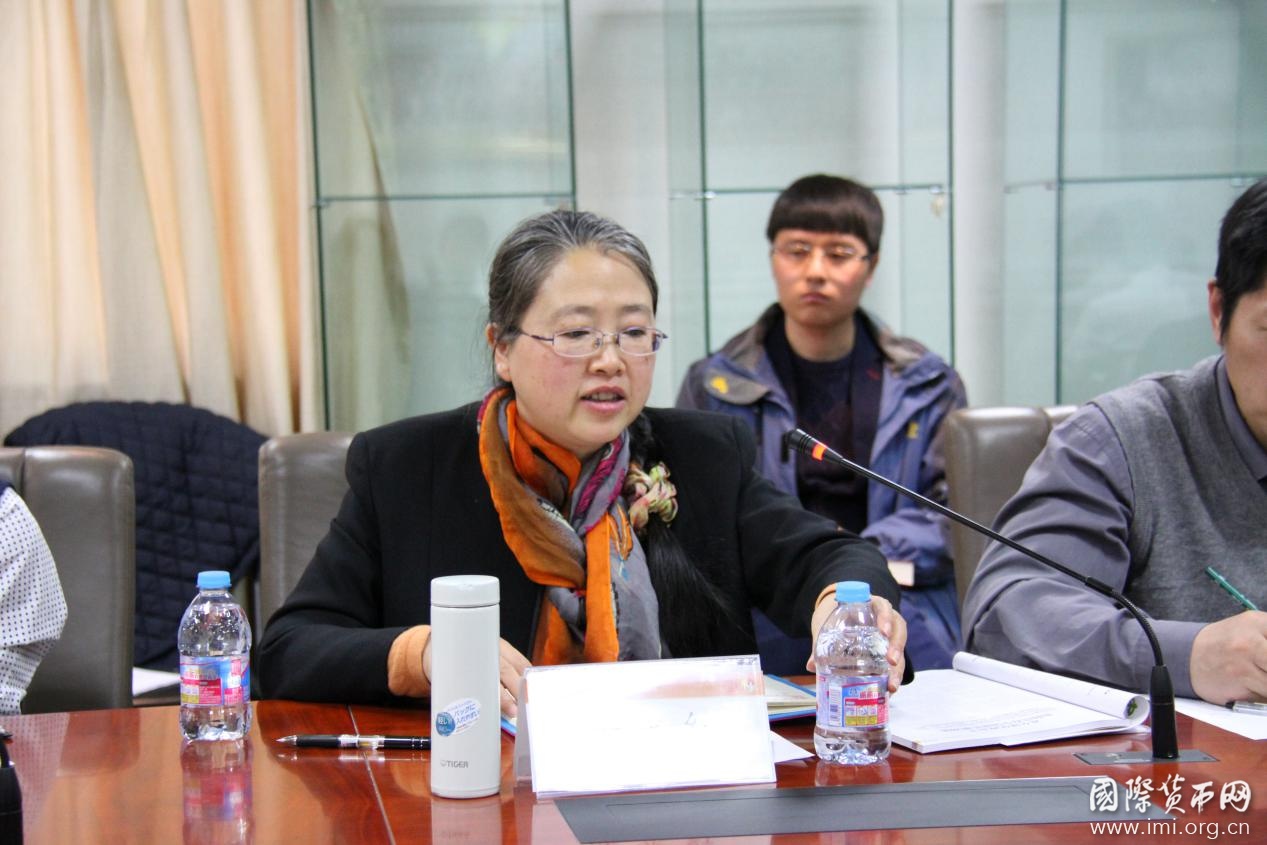McKinnon Lectures (No. 12): Europe at a Crossroads
2017-06-27 IMIOn June 27, McKinnon Lectures (No. 12) was held at Mingde Main Building of Renmin University. Nout Wellink, former president of the Dutch Central Bank was invited to deliver a keynote speech themed “Europe at a Crossroads”. Prof. Ben Shenglin, Founding Dean of Zhengjiang University Academy of Internet Finance and executive director of IMI, presided over the lecture. In his speech, Mr. Nout Wellink first pointed out that the world economic and political relations were changing rapidly, thus policy-makers have to consider factors of all parties for wise decisions. In the process of globalization, large emerging economies such as China and India were rising on the world stage at an unprecedented rate. The international monetary system, however, has not yet formed a reasonable framework to adapt to this trend. He believed that if China tended to liberate exchange rate, the risks brought by it would be hard to tackle. Therefore, the Chinese government should be cautious about easing exchange rate market regulation.
In his speech, Mr. Nout Wellink first pointed out that the world economic and political relations were changing rapidly, thus policy-makers have to consider factors of all parties for wise decisions. In the process of globalization, large emerging economies such as China and India were rising on the world stage at an unprecedented rate. The international monetary system, however, has not yet formed a reasonable framework to adapt to this trend. He believed that if China tended to liberate exchange rate, the risks brought by it would be hard to tackle. Therefore, the Chinese government should be cautious about easing exchange rate market regulation. Mr. Wellink then elaborated on the challenges facing Europe today. He pointed out that despite uncertainties caused by political events like Trump being elected as the President of the United States, the Brexit and elections in France and Netherlands, Europe’s economic growth remained sound in the first half of this year. On the issue of development, he stressed that per capita GDP should be used more to measure the economic conditions of European countries, and the high unemployment rate of young people is also a hidden trouble. He noted that the fundamental problem of European development is the regional difference: strong countries stimulating growth would expand the gap. The EU's future task, therefore, is to help the relatively small economies to formulate proper strategies for development. In the discussion of deflation, he suggested that quantitative easing may not achieve expected effects, as the government's excessive introduction of policies and regulations to interfere the market may have side effects. A better way is to strengthen the flexibility of policies. Mr. Wellink claimed that in the context of globalization, a dynamic and open world mechanism is needed to incorporate emerging economies. Meanwhile, he advised to discuss the necessity of establishing an integrated finance regulation institution in Europe. He said that with the help of the Central Bank, Europe survived the financial crisis and could calmly respond to the Brexit. European countries should narrow the gap of development, strengthen financial connections, manage the risks and cooperate with and be open to each other at the crossroads.
Mr. Wellink then elaborated on the challenges facing Europe today. He pointed out that despite uncertainties caused by political events like Trump being elected as the President of the United States, the Brexit and elections in France and Netherlands, Europe’s economic growth remained sound in the first half of this year. On the issue of development, he stressed that per capita GDP should be used more to measure the economic conditions of European countries, and the high unemployment rate of young people is also a hidden trouble. He noted that the fundamental problem of European development is the regional difference: strong countries stimulating growth would expand the gap. The EU's future task, therefore, is to help the relatively small economies to formulate proper strategies for development. In the discussion of deflation, he suggested that quantitative easing may not achieve expected effects, as the government's excessive introduction of policies and regulations to interfere the market may have side effects. A better way is to strengthen the flexibility of policies. Mr. Wellink claimed that in the context of globalization, a dynamic and open world mechanism is needed to incorporate emerging economies. Meanwhile, he advised to discuss the necessity of establishing an integrated finance regulation institution in Europe. He said that with the help of the Central Bank, Europe survived the financial crisis and could calmly respond to the Brexit. European countries should narrow the gap of development, strengthen financial connections, manage the risks and cooperate with and be open to each other at the crossroads.




